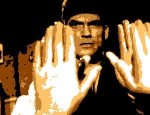Film Review

Finney is surprisingly effective in the role of the staunch capitalist who finally wins back his soul (by adopting a cute little orphan girl whose hobbies include collecting stray dogs and climbing up near-vertical railway bridges in the dead of night for no apparent reason), and Burnett delivers all the best laughs as the alcoholic orphanage owner. Aileen Quinn has all the qualities needed to make her a loveable Annie but some botched direction and choreography prevent her from making as much of an impact as she should. Whatever good will we may have for the film is pretty well burned up in the protracted, overly dramatic ending, which seems to lose sight of what the film was meant to be about. Whilst it has some charm and just about passes for entertainment, it is difficult to get enthusiastic about Annie, one of John Huston's least inspired films - a sad footnote to a career that endowed cinema with such enduring classics as The Maltese Falcon (1941), Key Largo (1948) and The African Queen (1951).
© James Travers 2012
The above content is owned by frenchfilms.org and must not be copied.
Film Synopsis
In 1933, Annie is a ten-year-old orphan living in a New York orphanage run by the tyrannical Miss Hannigan. Her life is not an easy one but she consoles herself with the thought that one day she will be reunited with her parents. It so happens that the billionaire entrepreneur Oliver Warbucks is looking for an orphan to spend a week in his mansion, so that he can improve his public image. Annie is selected by Warbucks' faithful secretary Grace Farrell, and she and is thrilled at the prospect of a week of unbridled luxury. Once the week is over, Warbucks is easily persuaded by Grace to adopt Annie, but the little girl refuses to be adopted because she is certain that her biological parents are still alive. Warbucks orchestrates a national campaign (with the support of President Roosevelt) to find Annie's parents, offering a substantial reward if they show up to claim their daughter. Tempted by the promise of easy money, Miss Hannigan's crooked brother Rooster and his girlfriend Lily decide to pass themselves off as Annie's parents...© James Travers
The above content is owned by frenchfilms.org and must not be copied.
Similar Films
Here are some other films you may enjoy watching:- Follow a Star (1959)
- Je n'aime que toi (1949)
- La Rose rouge (1951)
- Podium (2004)
- Spare a Copper (1941)
Other related links:
Film Credits
- Director: John Huston
- Script: Harold Gray, Carol Sobieski, Thomas Meehan (play)
- Cinematographer: Richard Moore
- Music: Charles Strouse
- Cast: Albert Finney (Daddy Oliver Warbucks), Carol Burnett (Miss Hannigan), Ann Reinking (Grace Farrell), Tim Curry (Rooster Hannigan), Bernadette Peters (Lily St. Regis), Aileen Quinn (Annie), Geoffrey Holder (Punjab), Roger Minami (Asp), Toni Ann Gisondi (Molly), Rosanne Sorrentino (Pepper), Lara Berk (Tessie), April Lerman (Kate), Robin Ignico (Duffy), Lucie Stewart (July), Edward Herrmann (FDR), Lois De Banzie (Eleanor Roosevelt), Peter Marshall (Bert Healy), Loni Ackerman (Boylan Sister), Murphy Cross (Boylan Sister), Nancy Sinclair (Boylan Sister)
- Country: USA
- Language: English
- Support: Color
- Runtime: 126 min
The very best of Italian cinema

The very best fantasy films in French cinema

The best of American film noir
